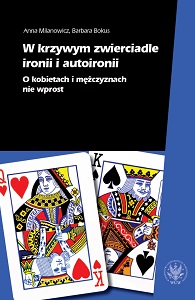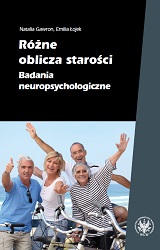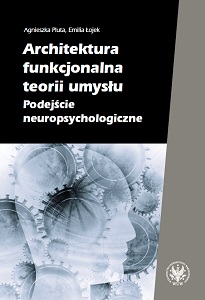
In the distorting mirror of irony and self-mockery. Implicitly on women and men
W krzywym zwierciadle ironii i autoironii. O kobietach i mężczyznach nie wprost
Keywords: irony; self-mockery; sex; gender; stereotype; self-esteem; anxiety; humour; emotions
A description of three experiments involving women and men, conducted with the aim of verifying how gender, self-esteem and anxiety influence the way verbal irony and self-mockery are generated and perceived, and how the image of the “I” is created in the process. The findings indicate that ironic statements (criticizing by praising or praising by criticizing) function not only on two linguistic levels (the literal and the intended one), but also in the perspective of the two sexes. Irony is more of a men’s domain. Men are more ironic than women and they often employ irony bordering on a joke. In the case of women, there is a tinge of spitefulness in their irony. People with higher self-esteem and lower anxiety levels are more likely to make use of self-mockery.
More...

